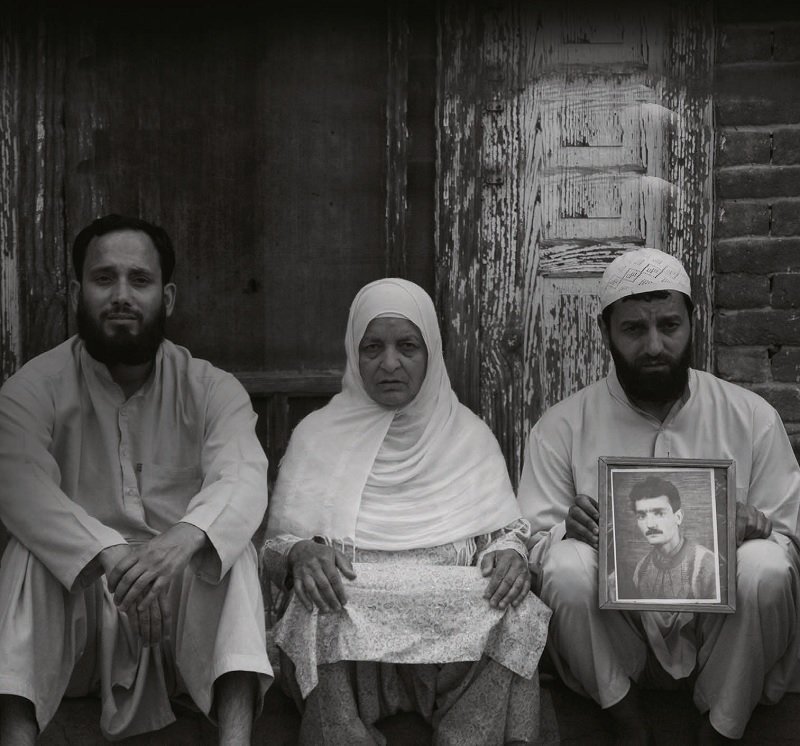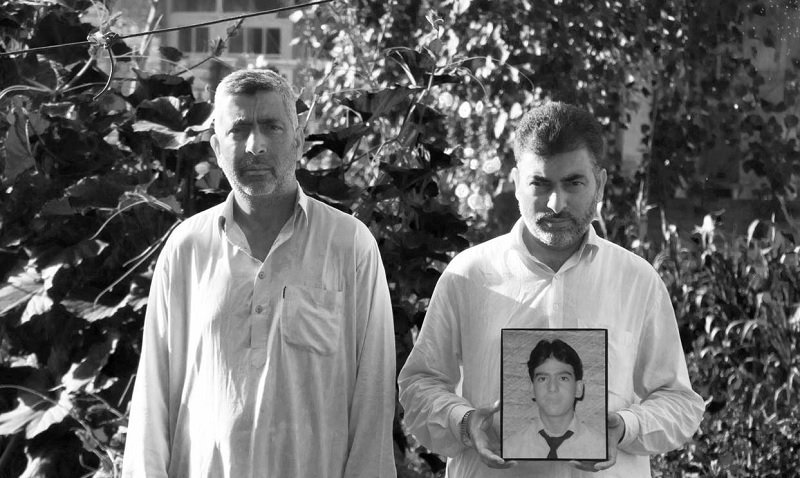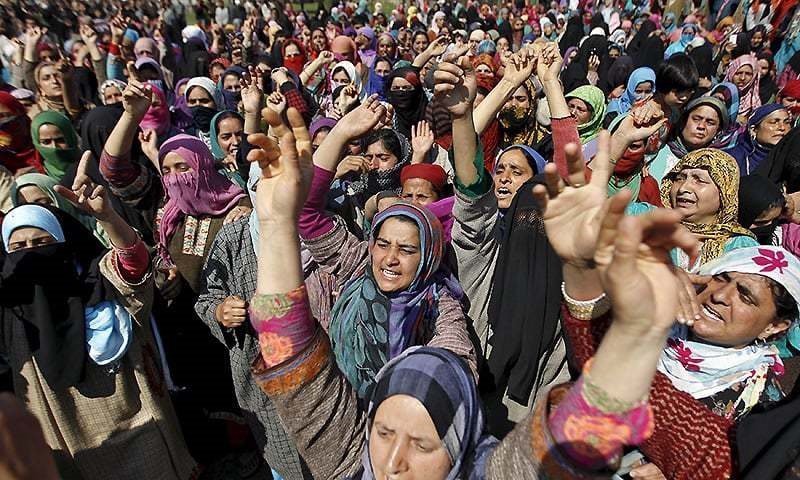In yet another instance of detailing abuses and denial of justice for violations of human rights by armed forces in disputed state of Jammu and Kashmir, Amnesty International has released a comprehensive report that documents how the impunity enjoyed by security forces under controversial Armed Forces Special Powers Act (AFSPA) has denied justice to the victims of human rights violations.
While saying that India has not only failed to uphold its international obligations, but has also failed its own Constitution by not addressing human rights violations committed by security force personnel in the name of national security, the London-based human rights body has called for revoking of AFSPA and investigations into the human rights violations in J&K; by an “independent and impartial” authority.
Titled ‘Denied – Failures in accountability for human rights violations by security force personnel in Jammu and Kashmir’ , the report released on Wednesday, July 1, by Amnesty International India has based its conclusions after analyzing government and legal documents related to over 100 cases of human rights violations committed between 1990 and 2013.

Source: Amnesty International India
Providing detailed instances of victim families’ denied justice with almost no or little information about the status of their cases, the report primarily focuses on Section 7 of Armed Forces (Jammu and Kashmir) Special Powers Act under which a sanction or permission has to be sought from the central government to prosecute members of the military or other security forces in civilian courts.
“To date, not a single alleged perpetrator of a human rights violation has been prosecuted in a civilian court. Victims and their families routinely face intimidation and threats from the security forces when attempting to bring cases against soldiers,” the report reads.
While the report fails to address the core issue surrounding the presence of more than half a million troops in Jammu and Kashmir – 67-year-old unresolved Kashmir dispute – the report is also critical of military justice system for “lack of transparency” and “access to public”, thus violating international standards for fair trials.
“The military establishment and those specializing in military law in India, while largely unconcerned about the trial of human rights violations within the military justice system, have acknowledged inherent defects within the military justice system – notably the lack of independence of courts that remain directly under the control of the executive – and encouraged reform,” it adds.
Major findings of the report:
— Impunity is a long-standing problem in Jammu and Kashmir. The lack of political will to account for past and present actions of the security forces, including the state police, is fortified by legislation and aggravated by other obstacles to justice, especially for those who lack financial resources or education.

Source: Amnesty International India
— The climate of impunity encourages human rights violations to continue. Faith in the government and judiciary is almost non-existent in Jammu and Kashmir.
— There are policy changes that would increase accountability – such as repealing provisions requiring sanction to prosecute members of the security forces, granting sanction in previously denied and currently pending cases, ensuring independent investigations, and excluding the option for trial by military courts in cases of human rights violations by security forces; but political will to enact them remains mercurial.
— In Jammu and Kashmir, ensuring accountability would include ensuring access to information for victims and families during police investigations, and guaranteeing due process when victims attempt to bring complaints against their abusers.
— An absence of accountability has ensured that security force personnel continue to operate in a manner that facilitates serious human rights violations. A former senior military official publicly argued in October 2013: “Immunity under AFSPA allows our soldiers to make mistakes. Insurgency will come to an end, you need to train soldiers better, I agree, but don’t remove the AFSPA.”
— Despite assurances from the Chief of Army Staff and the Head of the Army’s Northern Command in December 2013 that there is “zero tolerance” for human rights violations by the army, more than 96% of all complaints brought against the army in Jammu & Kashmir have been dismissed as “false and baseless” or “with other ulterior motives of maligning the image of Armed Forces.” — The small number of cases in which complaints against personnel have been investigated and military trials conducted are closed to public scrutiny. Few details of investigations conducted by the security forces are available to the public. The military are notoriously reluctant to share substantive information about how they conduct inquiries and trials by court-martial into human rights violations. There is even less information publicly available about investigations and trials conducted by paramilitary forces.

Source: Amnesty International India
— The report also demonstrates how security forces operating in Jammu and Kashmir have exacerbated this situation by routinely failing to cooperate with criminal investigations, civilian courts and government-ordered enquiries, and subjecting those pursuing complaints to threats, intimidation and harassment.
Researcher deported
A day after the release of Amnesty’s report, Indian-origin American citizen Christine Mehta working as a researcher with Amnesty International India, wrote an exhaustive essay in The Hindu on her deportation from India in 2014 after her visits to Jammu and Kashmir detailing abuses committed by armed forces under AFSPA.
A passage of the essay is worth noting:
In 2014, I was on the cusp of publishing a report on the abuses committed under the controversial Armed Forces Special Powers Act in Jammu and Kashmir. Despite the need for reform amongst the ranks, the Indian government remains extremely sensitive to the image of its Army and other security forces. The state terms anyone who raises questions about the conduct of the security forces as “anti-national”.
There had been signs of official unease with my work in Jammu and Kashmir. In early 2013, an officer from the Ministry of Home Affairs had visited our office after I returned from a trip to the State. He claimed that he needed to conduct a background check because a Pakistani journalist with suspected ties to terrorist groups had listed me as a reference while applying for an Indian visa. I had not been in touch with any Pakistani journalist. When he discovered that I was a Person of Indian Origin (PIO), and that my grandfather had migrated from India to the U.S., he stopped questioning me. He advised me to be wary of what Kashmiris tell me as they “have a special interest” in tarnishing India’s image.
Read full essay here.
Response from government
Reacting to the Amnesty’s report, Union Home Minister Rajnath Singh said the controversial Armed Forces Special Powers Act will be revoked in Jammu and Kashmir when the situation is conducive.
“I want to say that the situation should be such, and I pray to Almighty, that AFSPA should not be needed anywhere in the country. We will need cooperation of one and all to achieve this goal,” Singh told reporters during his two-day Kashmir visit on Thursday, July 2.

While the ‘Agenda of Alliance’ document that aligns ruling BJP-PDP government in Jammu and Kashmir had removal of AFSPA on cards, there have been contradictory remarks from the members of both the parties about the removal of AFSPA in recent months.
UN silence
On Friday, July 3, UN Secretary-General Ban Ki-moon declined to comment over the Amnesty International report that blames India of not taking action against troops accused of atrocities in Jammu and Kashmir state.
Asked on Thursday at the daily briefing at the UN headquarters for a reaction to the report issued on Wednesday, Ban’s deputy spokesperson Farhan Haq refused to comment on it, according to a Zee News report.

















